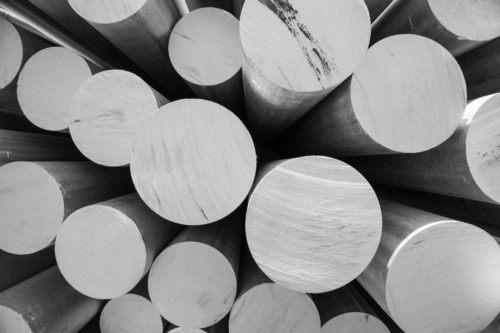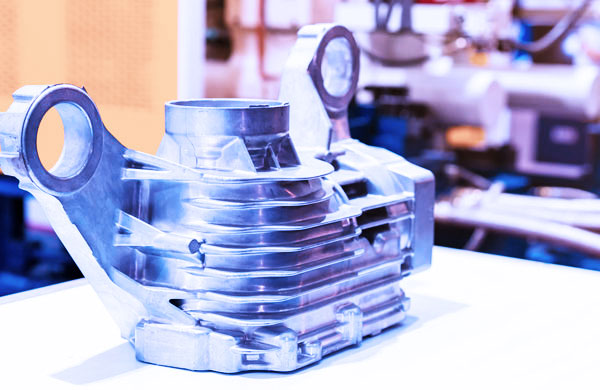Some Known Factual Statements About Stahl Specialty Company
Table of ContentsThe Best Guide To Stahl Specialty CompanyThe Facts About Stahl Specialty Company UncoveredLittle Known Facts About Stahl Specialty Company.Stahl Specialty Company Can Be Fun For AnyoneFacts About Stahl Specialty Company Uncovered
Chemical Contrast of Cast Light weight aluminum Alloys Silicon promotes castability by lowering the alloy's melting temperature level and improving fluidity throughout spreading. Additionally, silicon contributes to the alloy's stamina and use resistance, making it beneficial in applications where durability is critical, such as automotive components and engine elements.It additionally boosts the machinability of the alloy, making it simpler to process right into ended up products. By doing this, iron adds to the overall workability of light weight aluminum alloys. Copper raises electric conductivity, making it helpful in electrical applications. It likewise enhances corrosion resistance and contributes to the alloy's total strength.
Manganese adds to the strength of aluminum alloys and boosts workability. It is typically used in functioned light weight aluminum products like sheets, extrusions, and accounts. The visibility of manganese help in the alloy's formability and resistance to breaking throughout manufacture procedures. Magnesium is a light-weight element that supplies stamina and influence resistance to aluminum alloys.
Zinc enhances the castability of light weight aluminum alloys and assists manage the solidification procedure throughout spreading. It improves the alloy's strength and firmness.
An Unbiased View of Stahl Specialty Company
Due to the fact that aluminum-silicon alloys have excellent casting buildings, high gas properties, simple procedures, and excellent corrosion resistance, aluminum-silicon alloys are most generally utilized in the die-casting industry in your home and abroad. At the very same time, aluminum-silicon alloys are additionally relatively very early and commonly identified alloys developed and made use of in die-casting. After continuous research and renovation, a lot of the current worldwide mainstream aluminum-silicon alloys have been settled and are absolutely nothing greater than A356, A360, A380, ADC12, B390, and A413.
The key thermal conductivity, tensile stamina, return strength, and elongation vary. Select suitable raw materials according to the efficiency of the target item generated. Amongst the above alloys, A356 has the highest thermal conductivity, and A380 and ADC12 have the least expensive. The tensile restriction is the opposite. A360 has the very best return stamina and the greatest elongation rate.

Stahl Specialty Company - The Facts
In precision spreading, 6063 is well-suited for applications where detailed geometries and high-quality surface coatings are vital. Instances consist of telecommunication units, where the alloy's remarkable formability permits for smooth and aesthetically pleasing styles while maintaining architectural integrity. In the Illumination Solutions sector, precision-cast 6063 elements produce elegant and reliable illumination components that call for detailed forms and excellent thermal performance.
(http://tupalo.com/en/users/7986108)
The A360 displays exceptional elongation, making it perfect for complicated and thin-walled parts. In accuracy casting applications, A360 is fit for sectors such as Consumer Electronic Devices, Telecommunication, and Power Devices.

In precision spreading, aluminum 413 beams in the Consumer Electronic Devices and Power Devices markets. This alloy's remarkable corrosion resistance makes it a superb selection for outdoor applications, ensuring durable, sturdy items in the stated industries.
Fascination About Stahl Specialty Company
When you have determined that the light weight aluminum die casting process appropriates for your job, a crucial following step is choosing on the most suitable alloy. The light weight aluminum alloy you choose will significantly impact both the casting procedure and the properties of the final item. Because of this, you have to make your choice carefully and take an educated technique.
Figuring out one of the most appropriate light weight aluminum alloy for your application will imply considering a broad variety of features. These relative alloy features comply with the North American Pass Away Spreading Association's standards, and we've split them right into 2 groups. Casting Foundry. The initial category addresses alloy attributes that impact the manufacturing process. The 2nd covers features impacting the homes of the end product.
The alloy you pick for die casting straight affects my review here numerous facets of the spreading procedure, like exactly how very easy the alloy is to function with and if it is susceptible to casting defects. Hot cracking, also called solidification fracturing, is a typical die spreading defect for light weight aluminum alloys that can cause internal or surface-level splits or splits.
Stahl Specialty Company Things To Know Before You Buy
Specific light weight aluminum alloys are a lot more susceptible to hot cracking than others, and your choice ought to consider this. An additional usual issue located in the die spreading of aluminum is die soldering, which is when the cast adheres to the die wall surfaces and makes ejection hard. It can damage both the actors and the die, so you must search for alloys with high anti-soldering residential or commercial properties.
Corrosion resistance, which is already a notable quality of aluminum, can vary significantly from alloy to alloy and is a necessary characteristic to think about depending on the environmental problems your product will be subjected to. Wear resistance is another property commonly looked for in light weight aluminum items and can distinguish some alloys.